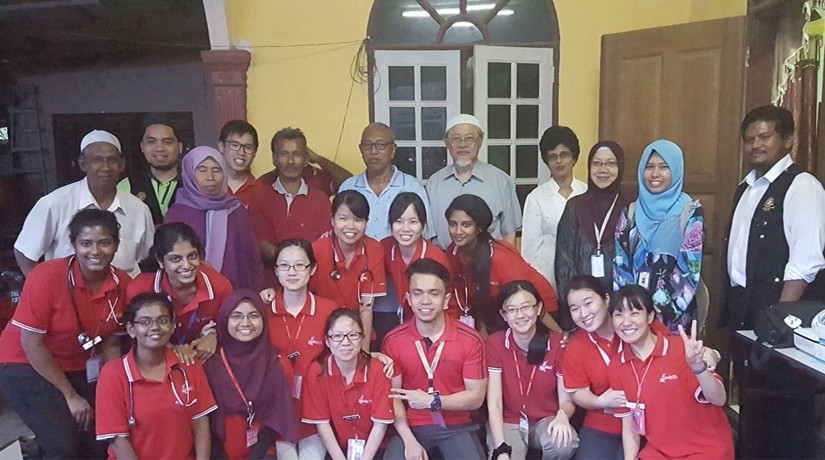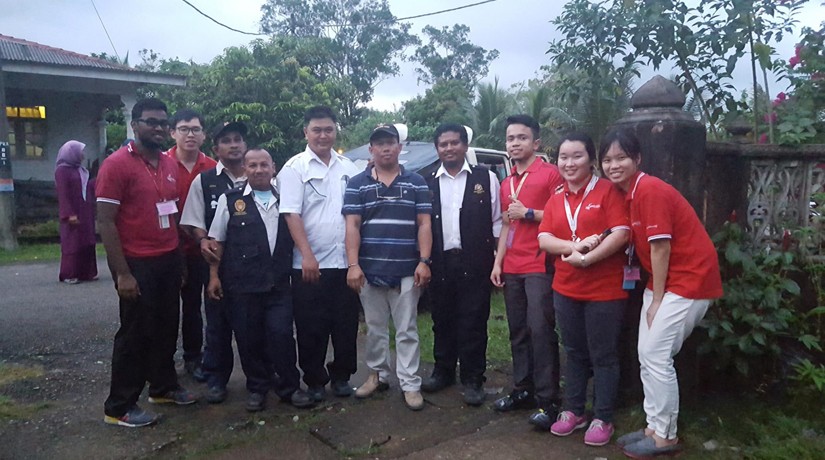Wed
16 MarProject Dengue: A Year 4 Community Medicine Research
We medical students tend to be so caught up in our pursuit for clinical knowledge and experience that often times, we end up having tunnel vision that confines our scope of learning. Thankfully, research is now being recognised as an important component of clinical practice and has been included into the MD and MBBS programmes in order to complement the clinical knowledge of future doctors. When we started our first day of our Community Medicine posting, we approached the course with the same mindset as we had - oblivious to the importance and value of research. However, this four-week course along with the countless literature we reviewed have broadened our minds and exposed us to the many benefits of research.
Under the supervision of our Community Medicine co-ordinator, Associate Professor Dr Retneswari Masilamani, we had an enriching hands-on experience that instilled in us the basic knowledge and interest in research. The topic that we undertook for our research is dengue in rural settings. The fact that dengue researches are usually conducted in urban areas set our research apart from the many KAP studies. Needless to say, this research has sparked in us an interest in dengue as WHO reports it as the fastest growing mosquito-borne disease in the world and has confirmed that dengue has spread into rural areas.
We started our research with some intensive literature research to equip ourselves with the necessary knowledge in our scope of interest. This guided us in getting our research proposal ready for approval. After that, we worked hard to collect data from the villagers of Kampung Tanah Lot in Wakaf Tapai, Marang, which in itself instilled in us communication skills as we had to interview the villagers. Following that, we had a hectic time analysing the data and writing our final research report.
Despite the hard work involved, the fact that we worked as a team made a lot of difference. Our group, which is usually segregated, truly came together during this posting. As medical students, most of our postings require intensive self-study. However, in this posting, all of us joined hands in making this research a success as we each contributed to the best of our abilities. There is no denying that working together towards this one goal has taught us how to work as a team.
Involving ourselves in a research also exposed us to leadership skills as most of us were appointed as leaders for the various processes in conducting our research. I believe this will be beneficial to us in our future careers as doctors. We are tremendously grateful for being able to hone this skill during these four weeks.
During the second week of our research, we were given the golden opportunity to observe as the Vector team from PKD Marang performed larvae inspection at the households of Kampung Tanah Lot. Despite being well-informed on the theoretical basis of dengue, we were never exposed to anything beyond the textbooks. We were very intrigued as we accompanied the Vector team and acquired additional knowledge and skills on ways to perform a larvae inspection. The team even managed to identify some mosquito larvae in a few houses. We were shocked at how little effort it takes for a mosquito to find a breeding place and how we tend to miss out on all the likely spots. We are greatly indebted to the Vector team for this experience as it raised our awareness on dengue prevention, which further motivated us in our research.
The most important aspect of this research has been our ability to serve the community. The community service was conducted at the end of our research, which we hope was a benefit to the villagers of Kampung Tanah Lot. We conducted screening for diabetes and blood pressure besides taking their anthropometric measurements. There was also a health talk by our team on dengue and counselling for the villagers. The heart to serve people should be a fundamental value in each doctor and this posting has definitely cultivated that value in all of us.
Without a shadow of doubt, we can assuredly conclude that this four-week research has been an eye-opening experience for all us. Not only has this been our first exposure to the world of research but this posting helped us in honing our soft skills. We would like to extend our heartfelt gratitude to Assoc Prof Retneswari for her constant guidance and advices as we went through this journey. We also appreciate the cooperation given by KK Wakaf Tapai under Dr Fatimah Suhasliza Abdul Rahman as we would never have been able to carry out this research without their permission and support. Not forgetting the Vector team of PKD Marang for the treasured experience on larvae inspection. Being given the opportunity to learn from the Ministry of Health staff has paved the way for us to network with the Ministry Of Health staff and exposed us to the importance of networking with other ministries and agencies in our field of medicine.
We are also grateful to UCSI University for providing us the opportunity to be involved in a research projects as undergraduates.
Written by: Renuka Beulah Kunalan and Janine Tan Sinn Lu on behalf of the class









